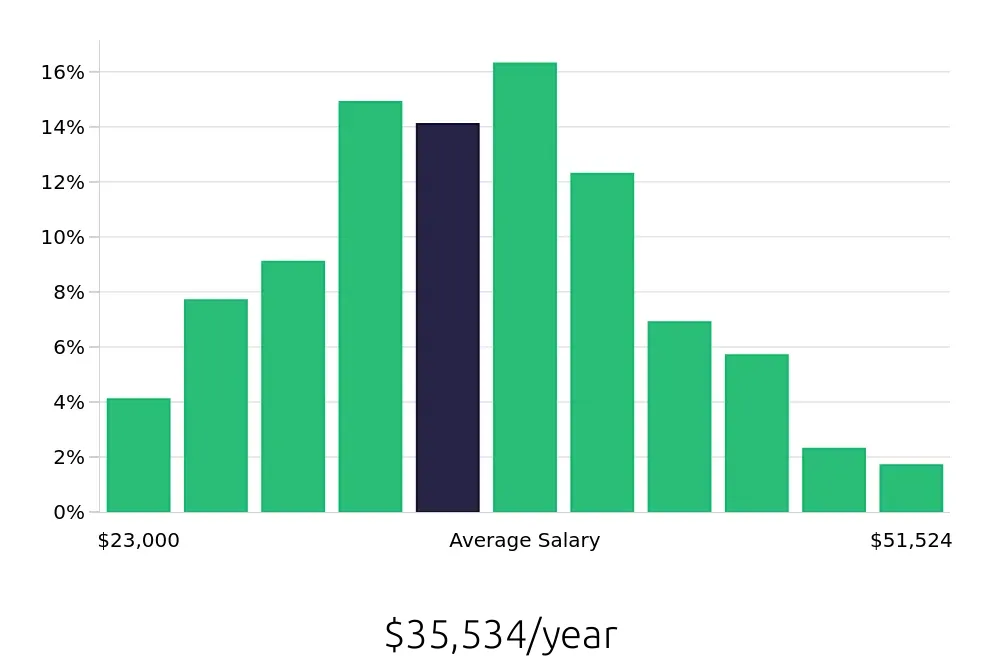Position
Overview
A cook prepares and cooks food in a variety of settings. This role involves following recipes, measuring ingredients, and using kitchen tools. Cooks work in restaurants, hotels, and other food service establishments. They may also work in schools, hospitals, or private homes. Cooks ensure that food is prepared safely and looks appealing.
A cook's duties include chopping vegetables, grilling meats, and baking desserts. They must keep the kitchen clean and follow health regulations. Cooks often work in fast-paced environments and may need to handle multiple tasks at once. This job requires attention to detail and the ability to work well under pressure. Cooks may also need to adjust recipes to meet dietary needs or preferences. This role offers the chance to be creative and to develop new dishes.
Becoming a cook can lead to a rewarding career in the culinary industry. This profession offers opportunities to create delicious meals and work in various settings, from restaurants to hotels. To start this career, follow these essential steps:
Following these steps can help someone start a successful career as a cook. Each step provides valuable skills and experience needed to thrive in the culinary world. With dedication and hard work, anyone can become a skilled cook and enjoy a fulfilling career in the food industry.
The journey to becoming a cook can vary. Many cooks start with formal training. This can be at a culinary school or a community college. A program here can take one to two years. Some cooks learn on the job. They start as kitchen helpers or line cooks. This hands-on experience can take a few months to a year. Cooks can also gain skills through apprenticeships. These often last between one and four years. Each path has its own benefits. Formal training offers structured learning. On-the-job training provides quick, real-world experience. Apprenticeships combine both learning and working.
Experience plays a big role in a cook's career. Entry-level cooks may start with basic tasks. Over time, they take on more responsibility. Cooks can specialize in different cuisines. This can take additional time and experience. Some cooks choose to get certifications. These can boost their skills and job prospects. The time it takes to become a skilled cook depends on the path chosen. It also depends on the dedication and hard work put in. With the right training and experience, anyone can become a successful cook.
We are seeking a skilled and creative Cook to join our team. The ideal candidate will be responsible for preparing delicious meals, maintaining kitchen hygiene, and ensuring the highest quality of food presentation. This role is perfect for a passionate individual who enjoys working in a fast-paced environment and has a keen eye for detail.
Responsibilities:
Qualifications
A career as a cook offers a unique blend of culinary creativity and teamwork. Cooks prepare meals in restaurants, hotels, and other food service establishments. They work under chefs, following recipes and ensuring food quality. This role demands attention to detail and the ability to work under pressure. Cooks often learn on the job, with many gaining experience through apprenticeships or culinary school.
Choosing a career as a cook has its own set of advantages and disadvantages. Understanding these can help job seekers make an informed decision. Here are some key points to consider:
The job outlook for Cooks is promising, with an average of 22,000 job positions available each year. This steady demand indicates a stable career path for those entering the field. The Bureau of Labor Statistics (BLS) projects a 5.3% increase in job openings from 2022 to 2032, highlighting a growing need for skilled Cooks in various settings.
Cooks can expect a competitive average annual compensation of $45,780, according to the BLS. This figure reflects the value placed on culinary skills in today's job market. Additionally, the average hourly wage stands at $22.01, offering a fair return for the time and expertise invested in preparing meals. These figures make a career in cooking both attractive and financially rewarding.
For job seekers, the outlook for Cooks is encouraging. With a consistent number of job openings and a positive growth trend, this profession provides a reliable career option. The combination of job stability, competitive pay, and the opportunity to work in diverse environments makes cooking a viable and rewarding career choice.
